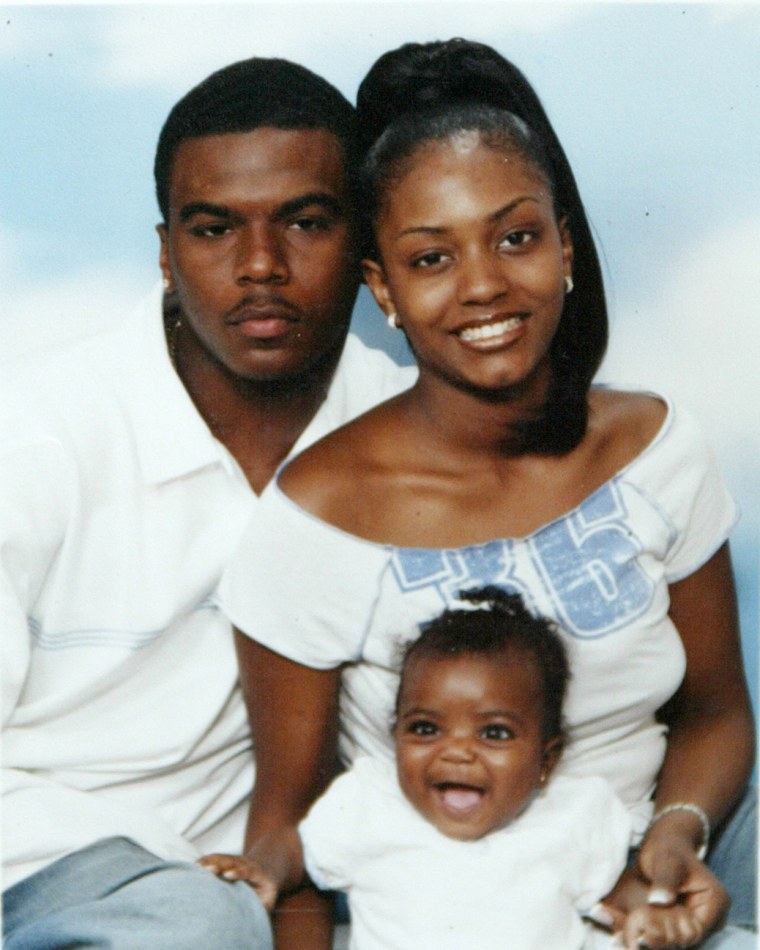The firing Monday of the New York City police officer involved in the chokehold death of Eric Garner caps five years of a winding investigation and drawn-out legal fights.
But as Garner's loved ones thanked NYPD Commissioner James O'Neill, whose decision came after an administrative judge recommended earlier this month that veteran Officer Daniel Pantaleo be terminated, other families who've experienced protracted battles of their own say the pursuit for justice is never really over.
"This action should have been taken years ago," said Nicole Paultre Bell, whose fiancé, Sean Bell, was killed in an NYPD fusillade in 2006 hours before their wedding. "For the Garner and Carr families, it's bittersweet," she said.
Paultre Bell, who took her fiancé's last name in his memory, said she has maintained a friendship with Garner's family, including his mother, Gwen Carr, as well as others across the country whose family members have died in police use-of-force incidents in recent years. Theirs have been relationships entwined by grief, anger and a desire to make meaningful change.
"Your journey becomes someone else's survival guide," Paultre Bell said, "and that's an amazing thing to be able to help someone in their time of need."
Her advice to Garner's family Monday: "Keep a fire lit for justice, and encourage movements across this nation. Continue to fight for laws that can make a difference."
The death of Garner, an unarmed black father, provoked outrage in the summer of 2014 and became another rallying cry in the national discussion on policing and racial bias. Pantaleo, who joined the NYPD in 2006, was seen on video using a chokehold on Garner, who was heard repeatedly saying, "I can't breathe."
Garner, 43, was allegedly selling loose, untaxed cigarettes. He suffered an asthma attack during the incident and went into cardiac arrest while he was being restrained, according to the city's medical examiner.
In the months that followed, the pressure was on New York City Mayor Bill de Blasio to fire Pantaleo. Ultimately, it was up to the police commissioner to make that decision, but the process was in limbo as a grand jury weighed whether to indict him on criminal charges — it declined — and the Justice Department reviewed whether to bring criminal or civil rights charges — it also declined.
Pantaleo could challenge the ruling and fight to get his job back, but if he remains terminated, he would still be entitled to all pension benefits he had accrued through Monday, O'Neill said.
The police commissioner added that while Garner made a mistake by not complying as he should have, Pantaleo still failed to relax his grip around Garner's neck.
Patrick Lynch, the president of the city's Patrolmen's Benevolent Association, blasted the commissioner's decision.
"The job is dead because the leadership of this city and this police department is absolutely afraid of the criminal advocates, and based this decision not on the facts but based this decision on the politics," Lynch told reporters.

Paultre Bell said hearing Pantaleo was fired brought her back to the day in 2012 that she learned the fate of the officers involved in Bell's 2006 death: While one detective was terminated from the NYPD, three others were forced to retire with full benefits.
Bell, a 23-year-old father of two, was gunned down outside of a Queens strip club where he had been celebrating his bachelor party, just hours before his wedding. Plain-clothes officers were conducting a prostitution sting and one of them believed a shooting was about to take place, according to reports. The chain of events led officers to fire about 50 bullets into the car that Bell and his companions were sitting in. No gun was found in the car.
In 2008, the three officers indicted in the shooting were acquitted, setting off protests.
While it took another four years before the officers involved were forced out of the department, Paultre Bell said it was "a slap in the face" to know their pensions were intact.
Now, she said, she's advocating for the families of people who were killed by police, and said new laws are needed to ensure that therapy is made available to people who've experienced the trauma of police-involved deaths.
She added that it's even more necessary after a recent report showed that police killings — which can include shootings, choking and other uses of force — are the sixth-leading cause of death among men ages 25 to 29. Black men are 2.5 times more likely than white men to be killed by police, according to the study published in the Proceedings of the National Academy of the Sciences.
Garner's family said Monday it will continue to push for a law that would ban chokeholds — making it more than just a departmental policy.
The mother of Philando Castile, the Minnesota man who was fatally shot by a police officer in 2016 during a traffic stop that was shared on social media, said her struggle for change isn't over yet either — especially after the officer involved was acquitted of manslaughter. He walked away with a voluntary buyout from his suburban Minneapolis department.
Valerie Castile said she was "mad as hell" with the outcome of the trial, but she's learned to channel her anger. She started a nonprofit foundation in her son's name to help children and others affected by gun violence, and she hopes Garner's family can stay resilient, leaning on their faith and one another to keep his memory alive.
"The only thing you can do," Castile said, "is to keep fighting."

